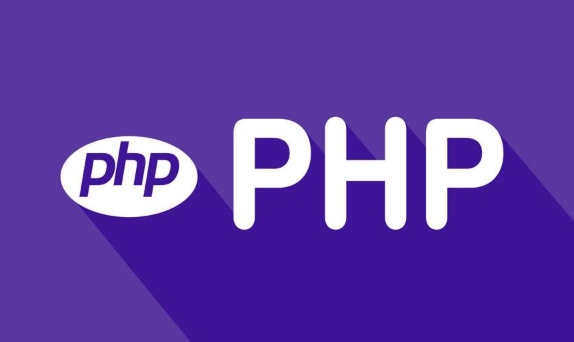PSR standards are a set of coding guidelines created by PHP-FIG to promote consistency and interoperability across PHP projects. They include PSR-1, which covers basic coding standards like proper use of PHP tags and naming conventions; PSR-4, which defines an autoloading standard for class file paths; and PSR-12, which expands on PSR-1 with detailed formatting rules. Other PSRs, such as PSR-3 and PSR-7, address behavior rather than style. These standards matter because they ensure consistency across projects, improve code readability and maintenance, enhance collaboration, and ensure compatibility with tools like Composer and PHPUnit. To apply PSR standards, developers can use automated formatters like PHP-CS-Fixer, set up Git pre-commit hooks, enable auto-formatting in IDEs, structure new projects according to PSR-4, and configure composer.json correctly for autoloading. While not mandatory, following PSR standards is considered best practice in professional PHP development.

PHP PSR standards—short for PHP Standards Recommendations—are a set of coding guidelines created by the PHP Framework Interop Group (PHP-FIG). These standards aim to promote consistency and interoperability across different PHP projects and frameworks. They don't enforce how you write your logic, but they do define how code should be structured and formatted.

What Exactly Are the PSR Standards?
PSR started with a few basic recommendations and has grown over time. The most commonly referenced ones are:
-
PSR-1: Basic coding standard – covers things like using
<?phptags properly, class and method naming conventions, and using namespaces. - PSR-4: Autoloading standard – defines how classes should map to file paths so that autoloading works seamlessly.
- PSR-12 (formerly known as the extended coding style guide): Builds on PSR-1 and PSR-12 with more detailed formatting rules, like indentation, spacing around operators, and line lengths.
There are other PSRs too—like PSR-3 for logging, PSR-7 for HTTP messages—but those are more about behavior than code style.

Why Should You Care About PSR Standards?
You might wonder why these standards matter if your code still runs without them. Here’s why they’re important:
- Consistency Across Projects: When multiple developers work on the same project—or when you use third-party libraries—it helps if everyone follows the same structure.
- Easier Code Reading and Maintenance: A uniform style makes it easier to read and understand code written by others (or even yourself months later).
- Better Collaboration: Open-source projects often require contributors to follow PSR standards so that merging and reviewing code is smoother.
- Compatibility with Tools and Libraries: Many modern PHP tools (like Composer, PHPUnit, and IDEs) expect PSR-4 autoloading or PSR-12 formatting.
If you're building a package meant to be reused across apps or shared publicly, following PSR standards makes integration much easier.

How to Apply PSR Standards in Your Projects
Applying PSR standards doesn’t have to be hard. Here’s how to get started:
- Use an automated code formatter like PHP-CS-Fixer or PHP_CodeSniffer to check and fix your code style according to PSR rules.
- Set up pre-commit hooks in Git to ensure code pushed to your repo already complies with standards.
- Most modern IDEs (like PhpStorm or VSCode with appropriate extensions) can auto-format code on save based on PSR rules.
- If you're starting a new project, make sure your folder structure and namespace setup align with PSR-4 from day one.
Composer also supports PSR-4 autoloading out of the box, so defining your autoload section correctly in composer.json is key.
Final Thoughts
PSR standards aren't mandatory, but they've become the de facto way to structure and format PHP code in professional environments. Whether you're working alone or in a team, sticking to PSR makes your codebase cleaner, more predictable, and easier to scale.
And honestly, once you get used to it, writing PSR-compliant code just becomes second nature.
The above is the detailed content of What are PHP PSR standards and why are they important?. For more information, please follow other related articles on the PHP Chinese website!

Hot AI Tools

Undress AI Tool
Undress images for free

Undresser.AI Undress
AI-powered app for creating realistic nude photos

AI Clothes Remover
Online AI tool for removing clothes from photos.

Clothoff.io
AI clothes remover

Video Face Swap
Swap faces in any video effortlessly with our completely free AI face swap tool!

Hot Article

Hot Tools

Notepad++7.3.1
Easy-to-use and free code editor

SublimeText3 Chinese version
Chinese version, very easy to use

Zend Studio 13.0.1
Powerful PHP integrated development environment

Dreamweaver CS6
Visual web development tools

SublimeText3 Mac version
God-level code editing software (SublimeText3)
 PHP Variable Scope Explained
Jul 17, 2025 am 04:16 AM
PHP Variable Scope Explained
Jul 17, 2025 am 04:16 AM
Common problems and solutions for PHP variable scope include: 1. The global variable cannot be accessed within the function, and it needs to be passed in using the global keyword or parameter; 2. The static variable is declared with static, and it is only initialized once and the value is maintained between multiple calls; 3. Hyperglobal variables such as $_GET and $_POST can be used directly in any scope, but you need to pay attention to safe filtering; 4. Anonymous functions need to introduce parent scope variables through the use keyword, and when modifying external variables, you need to pass a reference. Mastering these rules can help avoid errors and improve code stability.
 How to handle File Uploads securely in PHP?
Jul 08, 2025 am 02:37 AM
How to handle File Uploads securely in PHP?
Jul 08, 2025 am 02:37 AM
To safely handle PHP file uploads, you need to verify the source and type, control the file name and path, set server restrictions, and process media files twice. 1. Verify the upload source to prevent CSRF through token and detect the real MIME type through finfo_file using whitelist control; 2. Rename the file to a random string and determine the extension to store it in a non-Web directory according to the detection type; 3. PHP configuration limits the upload size and temporary directory Nginx/Apache prohibits access to the upload directory; 4. The GD library resaves the pictures to clear potential malicious data.
 Commenting Out Code in PHP
Jul 18, 2025 am 04:57 AM
Commenting Out Code in PHP
Jul 18, 2025 am 04:57 AM
There are three common methods for PHP comment code: 1. Use // or # to block one line of code, and it is recommended to use //; 2. Use /.../ to wrap code blocks with multiple lines, which cannot be nested but can be crossed; 3. Combination skills comments such as using /if(){}/ to control logic blocks, or to improve efficiency with editor shortcut keys, you should pay attention to closing symbols and avoid nesting when using them.
 How Do Generators Work in PHP?
Jul 11, 2025 am 03:12 AM
How Do Generators Work in PHP?
Jul 11, 2025 am 03:12 AM
AgeneratorinPHPisamemory-efficientwaytoiterateoverlargedatasetsbyyieldingvaluesoneatatimeinsteadofreturningthemallatonce.1.Generatorsusetheyieldkeywordtoproducevaluesondemand,reducingmemoryusage.2.Theyareusefulforhandlingbigloops,readinglargefiles,or
 Tips for Writing PHP Comments
Jul 18, 2025 am 04:51 AM
Tips for Writing PHP Comments
Jul 18, 2025 am 04:51 AM
The key to writing PHP comments is to clarify the purpose and specifications. Comments should explain "why" rather than "what was done", avoiding redundancy or too simplicity. 1. Use a unified format, such as docblock (/*/) for class and method descriptions to improve readability and tool compatibility; 2. Emphasize the reasons behind the logic, such as why JS jumps need to be output manually; 3. Add an overview description before complex code, describe the process in steps, and help understand the overall idea; 4. Use TODO and FIXME rationally to mark to-do items and problems to facilitate subsequent tracking and collaboration. Good annotations can reduce communication costs and improve code maintenance efficiency.
 Quick PHP Installation Tutorial
Jul 18, 2025 am 04:52 AM
Quick PHP Installation Tutorial
Jul 18, 2025 am 04:52 AM
ToinstallPHPquickly,useXAMPPonWindowsorHomebrewonmacOS.1.OnWindows,downloadandinstallXAMPP,selectcomponents,startApache,andplacefilesinhtdocs.2.Alternatively,manuallyinstallPHPfromphp.netandsetupaserverlikeApache.3.OnmacOS,installHomebrew,thenrun'bre
 How to access a character in a string by index in PHP
Jul 12, 2025 am 03:15 AM
How to access a character in a string by index in PHP
Jul 12, 2025 am 03:15 AM
In PHP, you can use square brackets or curly braces to obtain string specific index characters, but square brackets are recommended; the index starts from 0, and the access outside the range returns a null value and cannot be assigned a value; mb_substr is required to handle multi-byte characters. For example: $str="hello";echo$str[0]; output h; and Chinese characters such as mb_substr($str,1,1) need to obtain the correct result; in actual applications, the length of the string should be checked before looping, dynamic strings need to be verified for validity, and multilingual projects recommend using multi-byte security functions uniformly.
 Learning PHP: A Beginner's Guide
Jul 18, 2025 am 04:54 AM
Learning PHP: A Beginner's Guide
Jul 18, 2025 am 04:54 AM
TolearnPHPeffectively,startbysettingupalocalserverenvironmentusingtoolslikeXAMPPandacodeeditorlikeVSCode.1)InstallXAMPPforApache,MySQL,andPHP.2)Useacodeeditorforsyntaxsupport.3)TestyoursetupwithasimplePHPfile.Next,learnPHPbasicsincludingvariables,ech






